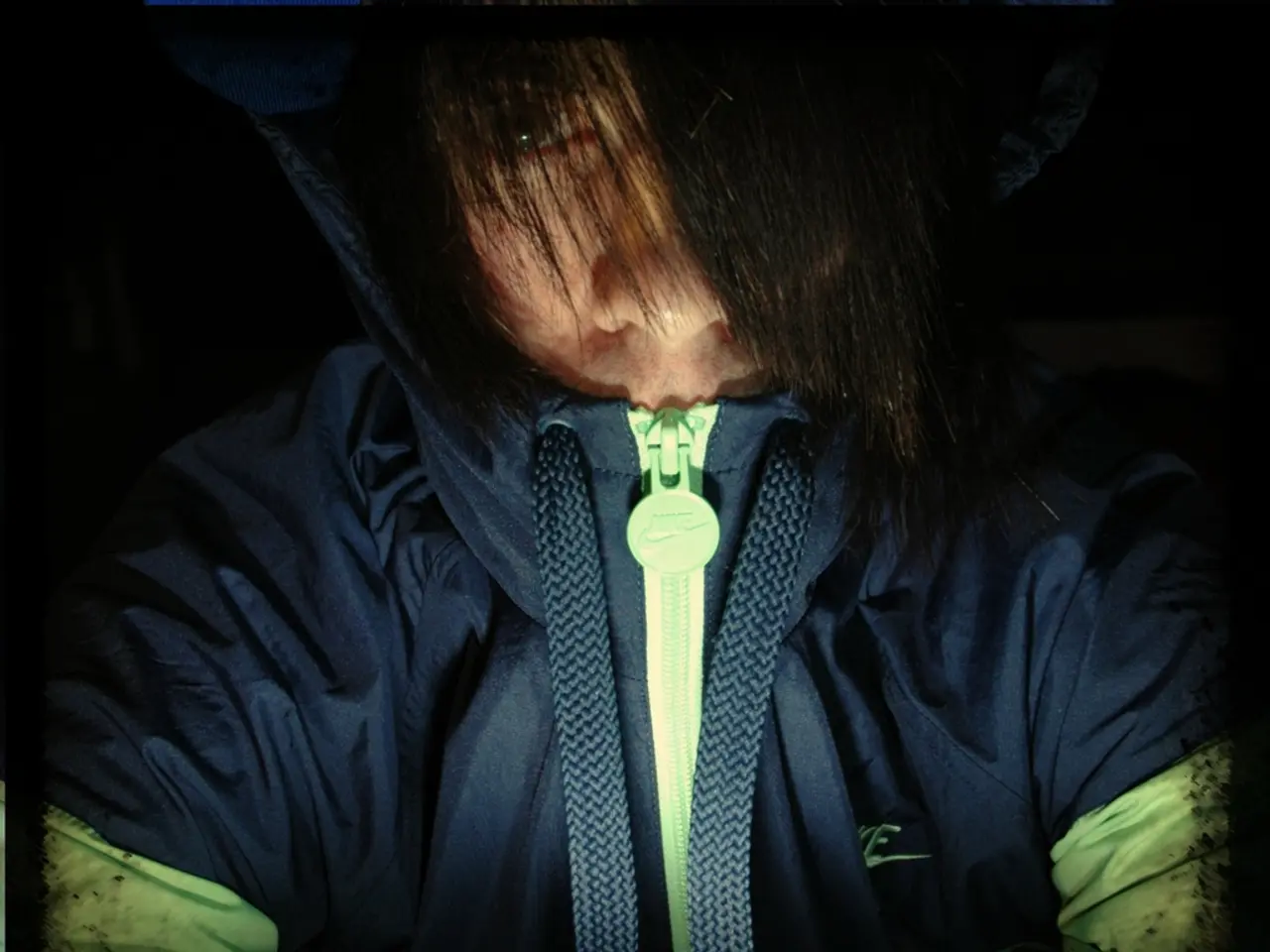Is there a connection between anxiety and baldness?
In the world of hair loss, stress can play a significant role. Stress can induce 70% of anagen hair into telogen, leading to hair loss, a condition known as telogen effluvium. This excessive shedding of resting (telogen) hair lasts for about 6 months [1].
Telogen effluvium is not the only type of stress-related hair loss. Alopecia areata, an autoimmune condition, involves the body's immune system attacking the hair follicles in the anagen phase, leading to hair loss [2]. For both telogen effluvium and alopecia areata, effective treatments focus on addressing triggers, correcting underlying causes, and managing psychological stress.
For telogen effluvium, treatments may include botulinum toxin A injections and multivitamin mesotherapy, which have shown improvement in terminal hair growth and follicular units [1]. Correcting underlying causes like iron deficiency, poor diet, and hormonal imbalances is also essential [1].
Alopecia areata is often worsened by psychological stress. Treatment involves managing stress and immunologic therapies. Topical or intralesional corticosteroids and immunotherapy are commonly used methods, along with psychological support to address anxiety or depression linked to stress-triggered episodes [1].
Trichotillomania, a compulsive hair-pulling disorder often exacerbated by stress, requires a different approach. Treatment focuses on behavioral health interventions. Cognitive-behavioral therapy (CBT), stress management techniques, and sometimes medications for underlying anxiety or compulsive behaviors are effective [3][5]. Habit reversal training, grounded in cognitive behavioral therapy, can help manage trichotillomania [5].
General strategies for stress-related hair loss include managing stress through relaxation techniques, meditation, and adequate sleep [5]. Maintaining a healthy diet rich in essential nutrients and vitamins to support hair growth is also crucial [1][5]. Scalp massages to enhance blood circulation and reduce tension in scalp muscles that can impair hair growth are beneficial [4][5]. Avoiding harsh hair care practices and using gentle products to minimize further hair damage is advised [3].
FDA-approved pharmaceutical options like minoxidil and finasteride primarily address androgenetic hair loss and are less directly applicable for stress-related hair loss types such as telogen effluvium or alopecia areata, though minoxidil might be supportive adjunctively [2].
In summary, effective treatment for hair loss is multifaceted: correcting underlying causes (nutritional, hormonal), managing psychological stress, and utilizing targeted medical or behavioral therapies depending on the specific diagnosis. Hair typically regrows once the stressor is removed and the condition treated, though this can take several months due to the hair growth cycle [1][3][5].
References: [1] American Academy of Dermatology. (n.d.). Hair Loss (Alopecia). Retrieved February 10, 2023, from https://www.aad.org/public/diseases/hair-loss/what/causes [2] National Alopecia Areata Foundation. (n.d.). Treatment. Retrieved February 10, 2023, from https://www.naaf.org/learn/treatment [3] Mayo Clinic. (2021, September 28). Trichotillomania. Retrieved February 10, 2023, from https://www.mayoclinic.org/diseases-conditions/trichotillomania/symptoms-causes/syc-20355265 [4] American Hair Loss Association. (n.d.). Scalp Massage for Hair Growth. Retrieved February 10, 2023, from https://www.americanhairloss.org/women_hair_loss/hair_loss_treatment/hair_loss_treatments/hair_loss_treatment_options/scalp_massage_for_hair_growth.html [5] Harvard Health Publishing. (2021, October 15). Hair loss: Causes, treatment, and prevention. Retrieved February 10, 2023, from https://www.health.harvard.edu/womens-health/hair-loss-causes-treatment-and-prevention
1) Underlying causes like poor diet, iron deficiency, and hormonal imbalances need to be corrected to address telogen effluvium, a type of stress-related hair loss.2) In the treatment of alopecia areata, an autoimmune condition causing hair loss, both immunologic therapies and managing psychological stress are crucial.3) While minoxidil might provide some support, FDA-approved pharmaceutical options like minoxidil and finasteride are primarily designed for androgenetic hair loss, not stress-related types such as telogen effluvium or alopecia areata.4) Treatment for trichotillomania, a compulsive hair-pulling disorder, focuses on behavioral health interventions like cognitive-behavioral therapy (CBT) and habit reversal training.




